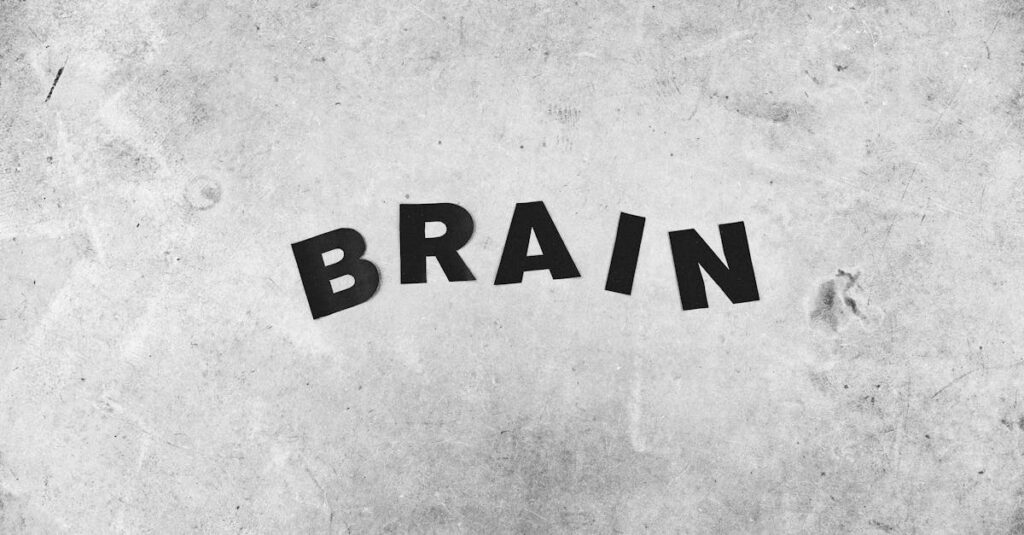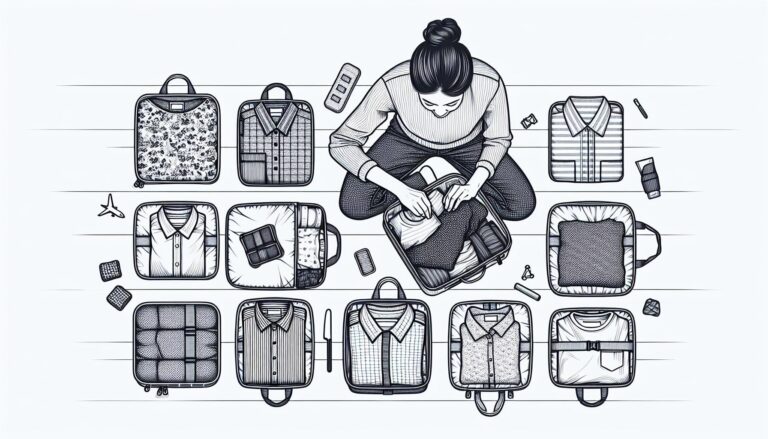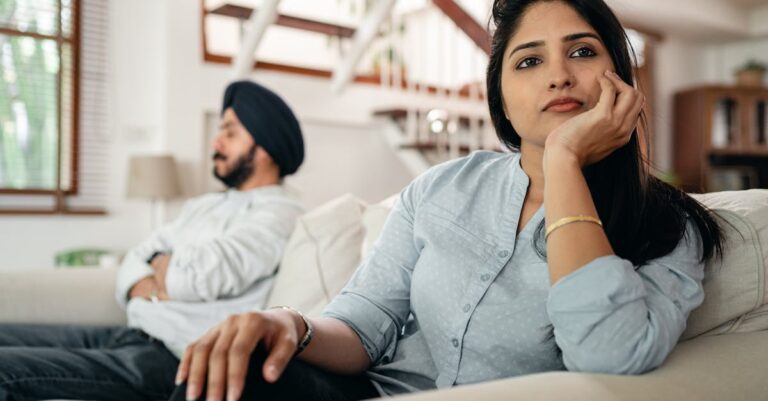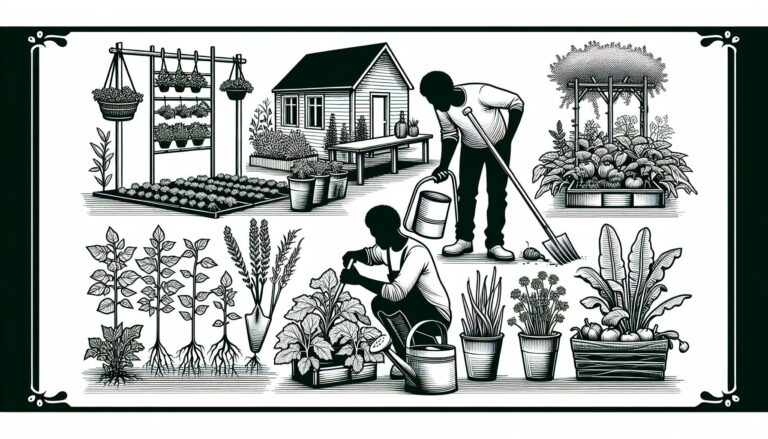In today’s fast-paced world, it’s easy to get caught up in the chaos. We’re constantly acquiring more stuff, and before we know it, we’re drowning in clutter. That’s where decluttering and minimalism come in. But what’s the difference?
Decluttering is all about getting rid of the excess. It’s about tidying up, organizing, and saying goodbye to the items that no longer serve a purpose. On the other hand, minimalism takes it a step further. It’s not just about clearing out the clutter—it’s about adopting a whole new mindset.
So if you’re feeling overwhelmed by the state of your space, don’t fret. Understanding the difference between decluttering and minimalism could be the key to reclaiming your peace of mind. Let’s dive in, shall we?
Decluttering vs. Minimalism
Let’s dive deeper into Decluttering vs. Minimalism, each contains its unique traits and values. With an understanding of the two, we can better navigate through our personal journey towards a tidier, more serene space.
Decluttering is an act of eliminating unnecessary items from an overcrowded area. It’s similar to cleaning out a closet filled with clothes that I haven’t worn in years. Uncluttering can significantly reduce stress by helping us feel more in control of our environment. The key benefits of decluttering include:
- Less time spent searching for items
- More energy for your day-to-day tasks
- A sense of accomplishment and control
On the flip side, Minimalism is a mindset, a lifestyle. It involves intentionally living with only the things I need. It’s not about deprivation, rather, it’s about freedom from the obsession with possessions. I choose quality over quantity, I conserve time, money, and energy that I usually spend on material possessions. The essence of minimalism manifests in:
- Less stress and distraction
- More freedom, time, and space
- Enhanced focus and creativity
It’s vital to note that minimalism does’t require you to get rid of everything you own. It’s about sorting out the important from the unimportant, creating space for things that truly matter.
Importance of Organizing and Tidying Up
In the midst of discussing Decluttering vs. Minimalism, it’s critical to understand why organizing and tidying up hold such significance in our lives. It’s not just about making a space look neater; it’s about creating an environment that supports your mental and physical health.
One of the major benefits of being organized is time management. When you know where your things are, you spend less time searching for items and more time being productive. Whether you’re a student balancing schoolwork and extracurriculars, or a working professional juggling multiple tasks, a well-organized environment can dramatically improve efficiency and effectiveness.
Living in an organized and decluttered environment reduces stress and anxiety. Messy surroundings can cause mental clutter, increasing feelings of frustration and unease. Order and organization provide a sense of calm, allowing your brain to rest and recharge.
If health and wellness are important to you, consider this fact: a tidy living space can promote healthier habits. It’s harder to maintain a fitness routine or eat healthily when your space is in disarray. An organized kitchen, for instance, can make meal prep easier and less daunting, while a decluttered space can encourage better sleep.
Tidying up also has financial implications. By regularly clearing out the unnecessary things, you become more aware of what you own, potentially saving you from duplicate purchases. More than just saving money, it can also foster a more mindful attitude towards consumption.
| Benefits | Direct Impact |
|---|---|
| Time management | Increased productivity |
| Stress reduction | Increased mental well-being |
| Health promotion | Improved lifestyle habits |
| Financial awareness | Reduced spending, increased savings |
These reasons underscore the importance of keeping our surroundings neat and organized. It’s not solely about aesthetic appeal, but rather about cultivating an environment that enhances our overall well-being. A well-organized space isn’t an end goal—it’s a means to a happier and more balanced life. Be it through decluttering or adopting minimalism, organizing and tidying up is a step worth taking towards better living.
The Process of Decluttering
Decluttering isn’t always as easy as it sounds. It’s more than just making a space look tidy. Decluttering is about making a conscious decision to let go of the items in our life that are no longer serving us. Items that create visual, mental, and emotional clutter can impede productivity and wellness.
When I’m considering decluttering, I like to keep things simple. That means starting small, maybe with one room or even one drawer. This helps prevent the overwhelm that can come from trying to tackle everything at once.
Next, I focus on the easier decisions first. There’s a knack to identifying those items that you feel attached to but don’t offer any real value. Believe it or not, these items are easier to let go of once we identify them – it’s how we begin to declutter.
Once I’ve sorted through the ‘easy’ items, I move onto the harder decisions. These are those possessions that have emotional value or memories attached to them. Remembering that these items don’t hold the emotion or memory themselves can help in this sometimes challenging process.
It’s also vital to have a disposal plan. Knowing how you’re going to get rid of items — through donations, selling, or binning — streamlines the process and makes you less likely to second-guess your decisions.
But crucially, decluttering should be an ongoing practice, not just a one-time event. It’s something that we should integrate into our lifestyle, so we continuously weed out what’s not serving us.
This is the basis of decluttering – creating an environment that nurtures well-being, bolstered by conscious decision-making about what we allow in our lives.
Embracing a Minimalist Mindset
Switching gears, let’s take a look at the concept of minimalism. Unlike decluttering, it’s not just about reducing physical items. Minimalism is a lifestyle choice, influencing everything from consumption habits to social commitments. It’s about going back to the basics, dwelling only with things that add value, and freeing the mind from the constant urge to acquire more.
It starts with the hardest part – the mindset shift. The day-to-day bombardment of advertisements and promotions leads us to believe that possessions equate to happiness. To adapt to a minimalist lifestyle, I need to reprogram this line of thinking. The focus shifts from “what more can I get” to “what can I do with less.”
When I stripped back unnecessary possessions, I also stripped back the pressure of maintaining and managing them. It gave me more time, more space, and less worry, which are truly priceless. I’m not implying that I instantly morphed into a monk with only two pairs of clothes. Remember, minimalism doesn’t mean deprivation. It’s not about counting items, but making each item count.
The core of minimalism is to bring intentionality into our lives. Buying a thing is not a bad idea per se as long as it fits my intentional living framework. I need to ask myself before every purchase – ‘Is it necessary, or am I buying it just because it’s on sale?’
Living a minimalist lifestyle also means opting for experiences over possessions. Would I remember the weekend getaway with loved ones or the expensive shoes that I’d put in the back of my closet after a glittery one-time wear?
Embracing minimalism is about creating an environment and a mindset where less is more. It’s a journey of letting go – the excess, the materialistic, the unnecessary – and simplifying life to invite peace and contentment. That’s the power of a minimalist mindset.
Finding Peace through Decluttering and Minimalism
I’d be the first to admit, my journey toward a minimalist lifestyle wasn’t a quick one, nor was it without its fair share of bumps. The transformative power of minimalism, however, has made the entire journey worthwhile, decluttering not only my physical surroundings, but also my thoughts and emotions.
Whether it is dealing with less day-to-day stress or finding clarity of mind, the impact of minimizing possessions doesn’t stop at just physical stuff. It’s more than freeing up space in your home; it’s about clearing space for your mental peace and wellbeing too. Living minimalist, for me, meant breaking free from the stress of always wanting more and feeling like I was never enough.
Remember, decluttering doesn’t mean living bare and empty. It is about trimming down and making mindful choices – focusing on the things that add real value and discarding the rest. Strip away the excess and you’ll find your home, and more importantly your mind, becoming gradually lighter, more organized, and less chaotic. It is like taking a deep breath in a newly discovered open space – an experience one should not miss.
When you accept and embrace decluttering, you will find your focus shifting towards the truly important things in life – the people, experiences, and passions that truly spark joy. Gradually, you’ll see a change – you will stop feeling overwhelmed with stuff and start feeling more in control. The urge to constantly acquire, gone.
When it comes to adopting a minimalist lifestyle, the mantra is simple: Less is More. By consciously implementing this ideology, it can gradually lead you to a simplistic lifestyle, achieving maximum happiness with minimal possessions.
Finding peace through decluttering and minimalism is more than just an aesthetic choice, it’s a lifestyle adjustment that can profoundly change your outlook on life, and open the doors to a clear mind and content heart.
Key Takeaways
- Decluttering and minimalism are two different strategies in managing our living space and lifestyle. While decluttering focuses on reducing items in an overcrowded area, minimalism is more about adopting a mindset where one intentionally lives with only the things needed.
- Organizing and tidying up are integral to a healthier and more productive life. Keeping our surroundings neat not only aids in time management but also reduces stress and anxiety, promotes healthier habits and increases financial awareness.
- The process of decluttering involves starting small, focusing on easier decisions first, moving onto harder decisions, having a clear disposal plan, and making decluttering a continuous practice.
- Embracing a minimalist mindset is more than reducing physical items. It requires a mindset shift from “what more can I get” to “what can I do with less,” choosing intentionality over impulse purchasing and opting for experiences over possessions.
- Both decluttering and adopting minimalism can bring peace and contentment in life. Focusing on things that add real value and discarding the rest can reduce the feelings of stress and help regain control over our environment.
Conclusion
It’s clear that both decluttering and minimalism have their unique roles in shaping a fulfilling life. They’re not interchangeable, but intertwined. While decluttering paves the way for mental peace by removing the unnecessary, minimalism goes a step further. It’s not just about having less but making room for more: more time, more peace, and more joy. It’s about understanding that less truly can be more and adopting this as a lifestyle. The shift towards valuing experiences over possessions is a powerful one. It’s a journey towards finding contentment in simplicity and control in letting go. So, whether you’re considering a decluttering spree or embracing minimalism, remember it’s about more than just material possessions. It’s about crafting a life of purpose, fulfillment, and true happiness.
What is the core premise of the article?
The article is situated around the idea that embracing minimalism can significantly transform an individual’s life by not only decluttering physical possessions but also thoughts and emotions resulting in reduced stress and improved mental clarity.
How does minimalism contribute to mental well-being?
Minimalism contributes to mental well-being by encouraging the decluttering of unnecessary items and thoughts, making room for mental peace and concentration on elements that add genuine value to life.
What are the benefits of decluttering highlighted in the article?
The article emphasizes that decluttering creates a sense of mental peace and increased focus on what truly matters, leading to a feeling of contentment and control over one’s life.
Is minimalism only about getting rid of physical possessions?
No, the article argues that minimalism extends beyond physical possessions; it refers to decluttering thoughts and emotions, allowing for reduced stress and a clearer mental state.
What does the phrase “Less is More” mean in the context of this article?
In the context of this article, “Less is More” signifies that possessing fewer items could result in greater happiness. It advocates for a shift towards prioritizing key elements of life, such as relationships and experiences, over material possessions.
How does the article perceive the impact of minimalism on lifestyle?
According to the article, the adoption of minimalism can result in a simpler and more fulfilling lifestyle, where one finds happiness, contentment, and control in fewer possessions by prioritizing what genuinely adds value.



